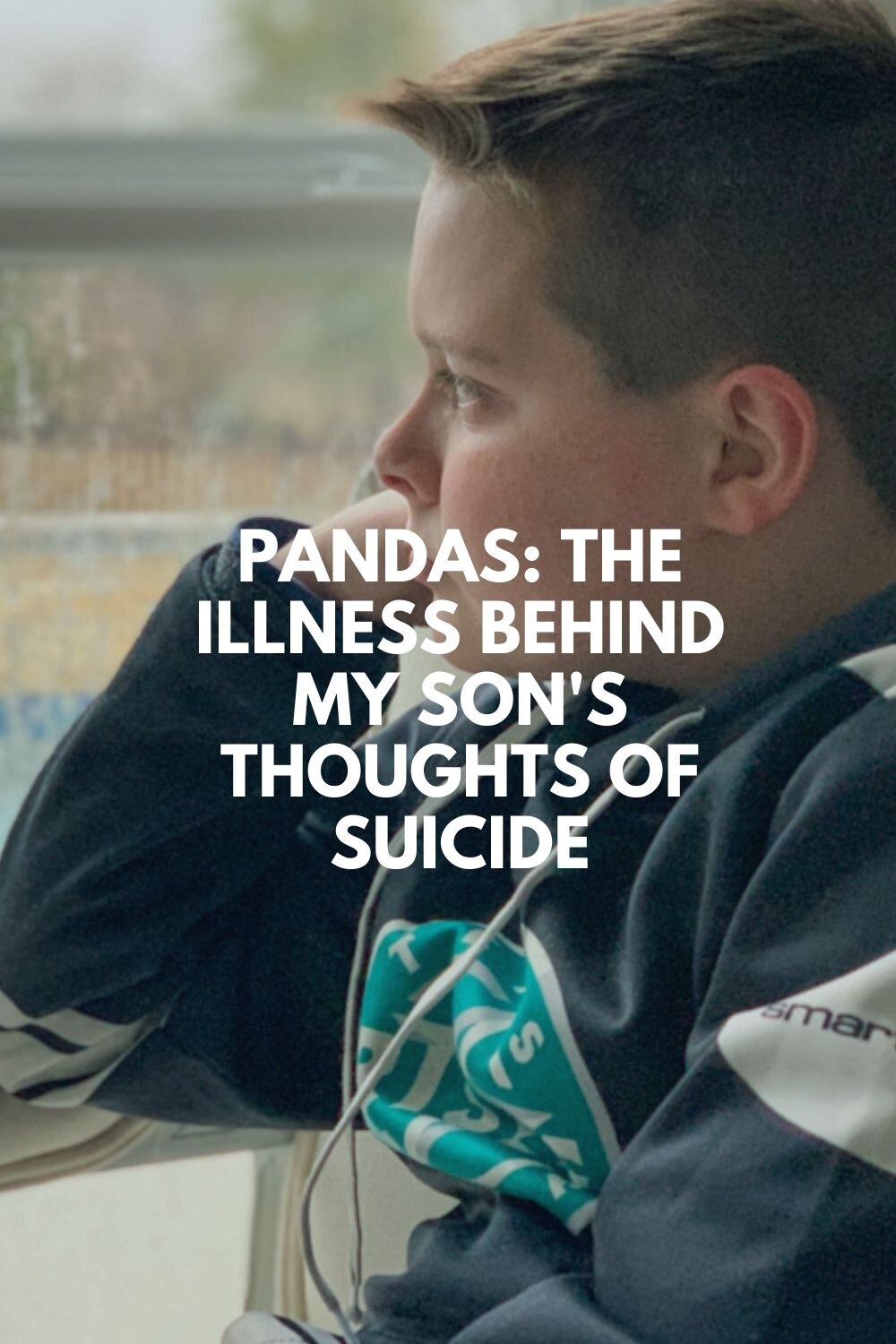The original version of this post was shared first on Austin Moms, where I am a regular contributor, in March 2020. By then, my son was fully recovered from PANDAS - Pediatric Autoimmune Neuropsychiatric Disorder Associated with Streptococcal infections (good ol’ strep throat). But it was a scary road getting there.
My son is the clown of our family. He was born with the gift of a cheery, optimistic outlook and a funny sense of humor that’s wittier than most kids his age. He’s the youngest, eight and a half years younger than his brother, and because of his hilarious showmanship, he’s always had a bit of an audience with us.
It’s why it was so startling when he pulled me into his room at bedtime one night to tell me he had been having scary thoughts. Thoughts of suicide.
He had just turned 11.
About a month prior, he had started a new school, but had missed nearly the first two weeks because he woke up on the first day with what turned out to be a strep infection that his little body just could not shake.
He was beginning to get into a rhythm with his school routine and started finally getting back to himself when he told me about the thoughts that were scaring him.
Thankfully, I was able to get my son in for an emergency appointment with a psychiatrist. He requested blood work, specifically to check for strep antibodies as well as for mononucleosis.
The doctor suspected PANDAS, a pediatric autoimmune disorder caused by strep infection that causes your body’s immune system to attack its healthy cells in the brain, stemming from inflammation in the basal ganglia, one of the most central, primitive centers of the brain.
The result is an almost overnight change in the child’s behavior, ranging from obsessive-compulsive behaviors to tics to moodiness and depression, the sudden onset of eating disorders, and even a decline in fine motor skills.
Our son’s blood tests showed that he had highly elevated strep antibodies, as well as those for mono, so the truth is that we aren’t sure if he had PANDAS or its ugly big sister, PANS, which is essentially the same condition, but instead of strep, it’s triggered by another infection or other metabolic disturbance.
Regardless of the trigger, there was an overnight personality change in our son, and the antibodies in his blood proved that his body was still fighting two infections from a month prior.
After the psychiatrist notified me, he reached out to my son’s pediatrician so they could collaborate on a diagnosis – which they both agreed was PANS/PANDAS – and an appropriate treatment plan, which was a round of strong antibiotics and close monitoring.
Once armed with the diagnosis, we met with the school administrators to have accommodations added to our child’s 504 Plan. We wanted to make sure he had access to the counselor and school nurse at any time he felt he needed to talk.
The treatment of antibiotics worked and within a few weeks, our son started to return to his normal, happy self, although it would be a few months before we would feel like he was completely back to himself.
We were lucky to have medical professionals willing not only to work collaboratively on behalf of our son, but who were willing to listen to me as a mother. Doctors who believed me and – despite never having diagnosed a case themselves before, were willing to investigate further and start treatment on my son.
If you have noticed sudden distressing behaviors that started over the course of just one to three days, make an appointment with your child’s doctor right away and request blood tests to check for Antistreptolysin O (ASO) titer and the Anti-DNase B antibody.
Both are antibodies that your body produces in response to a strep infection.
It’s important to note that while searching for elevated levels of strep antibodies is an important piece of criteria to help diagnose your child, it’s only one piece of a bigger puzzle, because a different illness could be the reason for an onset of PANS, and because the illness manifests differently in each person.
The most important step in getting treatment for your child is to trust your gut as a mother and if your doctor pushes back on what you believe to be PANS or PANDAS, find another provider. One who is willing to take the time necessary in investigating whether your child has this rare and complex illness.
My son hasn’t had any symptoms since his recovery, which took a good six months, but our doctors warned us that he could have a relapse with any future strep diagnoses. In fact, he’s at risk of returning PANDAS symptoms if he’s even exposed to strep in the future, although the risk declines as he ages.
Because he’s susceptible to this type of inflammation, he’s also at higher risk for a similar illness, MIS-C, if he’s exposed to COVID-19. MIS-C stands for Multisystem Inflammatory Syndrome in Children, and - although children are at a lower risk for the typical symptoms of COVID, it’s this syndrome in particular that I’m afraid of my son developing with any COVID exposure.
It’s very rare, but it is a very real illness.
In 2020, Texas Governor, Greg Abbott, created an advisory council on PANS, which is an important step in the right direction toward better understanding this illness and effective treatments.
It’s also validation for all the families who have experienced symptoms, only to be told by a doctor that they’re imagining things, or that their child has some other psychiatric disorder.









